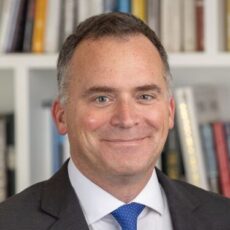
Navigating Climate Finance Challenges at COP29
As COP29 unfolds, negotiations on the New Collective Quantified Goal spotlight the challenges of defining fair, ambitious climate finance targets. Dive into the complexities shaping the future of climate action.
As COP29 unfolds in Baku, the negotiations on climate finance, particularly the New Collective Quantified Goal (NCQG), highlight both the progress made and the persistent tensions that threaten to impede global climate action. The discussions surrounding NCQG and broader climate finance frameworks show the complexity of global governance.
The New Collective Quantified Goal: Where Do We Stand?
The NCQG negotiations are a critical piece of the climate finance puzzle as Parties to the Paris Agreement work to define a new financial target post-2025. This goal builds on the previous commitment developed countries pledged to mobilize—$100 billion (USD) per year by 2020—to address the needs of developing countries. Under the Paris Agreement, developed countries are obligated to both provide finance (Article 9.1) and mobilize resources (Article 9.3). These obligations are part of an even broader aim of aligning financial systems with the Paris Agreement’s climate objectives (Article 2.1c).
However, the key questions remain unresolved:
- How much? Defining the “quantum” or increase of the mobilization goals remains a contentious issue.
- To whom? Should all developing countries benefit, or should there be a prioritization for Small Island Developing States (SIDS) and Least Developed Countries (LDCs), or some other way of taking account of climate vulnerability?
- From whom? Should the countries who must provide and mobilize remain unnamed? The Paris Agreement only mentions “developed countries,” which some interpret as meaning developed countries from the early 90s when the UNFCCC was first organized. The EU, U.S., U.K., Australia, and other developed countries want this group to expand to include newly wealthy countries. Many developing countries are currently opposing that expansion. The final deal will depend on resolving this issue.
These technical questions are intertwined with deeper political tensions about development finance and historical obligations.
The Broader Challenge of Climate Finance
Beyond the immediate NCQG negotiations lies the broader challenge of reshaping the global climate finance regime. The $100 billion annual target for years 2020 to 2025 is an important step, but a small fraction of the trillions needed for a comprehensive transition. The UNFCCC’s Standing Committee on Finance estimates that developing countries require around $5.8 to $5.9 trillion cumulatively by 2030 to meet their NDCs commitments.
Calls to connect UNFCCC mechanisms with the broader financial ecosystem—multilateral development banks, private investments, and public-private partnerships—are often met with skepticism from developing countries, as they have often found it difficult to work with these institutions.
A New Dynamic Amid Shifting Politics
Political developments outside COP29 may be influencing the negotiating dynamics. For instance, the U.S. elections have diminished the weight of U.S. influence in this year’s negotiations, as President-Elect Trump has stated his intention to withdraw from the Paris Agreement again. While this creates opportunities for other nations to step into leadership roles, and Brazil has signaled it wishes to do this, it also raises concerns about the weakening of multilateral institutions.
The Road Ahead
As negotiations continue, the key to progress will be finding compromises that balance the diverse interests at the table. This involves bridging divides between developed and developing countries, ensuring the NCQG reflects both ambition and fairness, and integrating climate finance with the broader financial ecosystem in a way that builds trust and delivers results.
The success of COP29 will ultimately hinge on finding creative and ambitious compromises. The stakes are high, but the potential for meaningful climate finance progress remains within reach.
Michael Weisberg
Deputy Director, Perry World HouseMichael Weisberg is deputy director of Perry World House, as well as Bess W. Heyman President’s Professor and Chair of Philosophy at the University of Pennsylvania.

